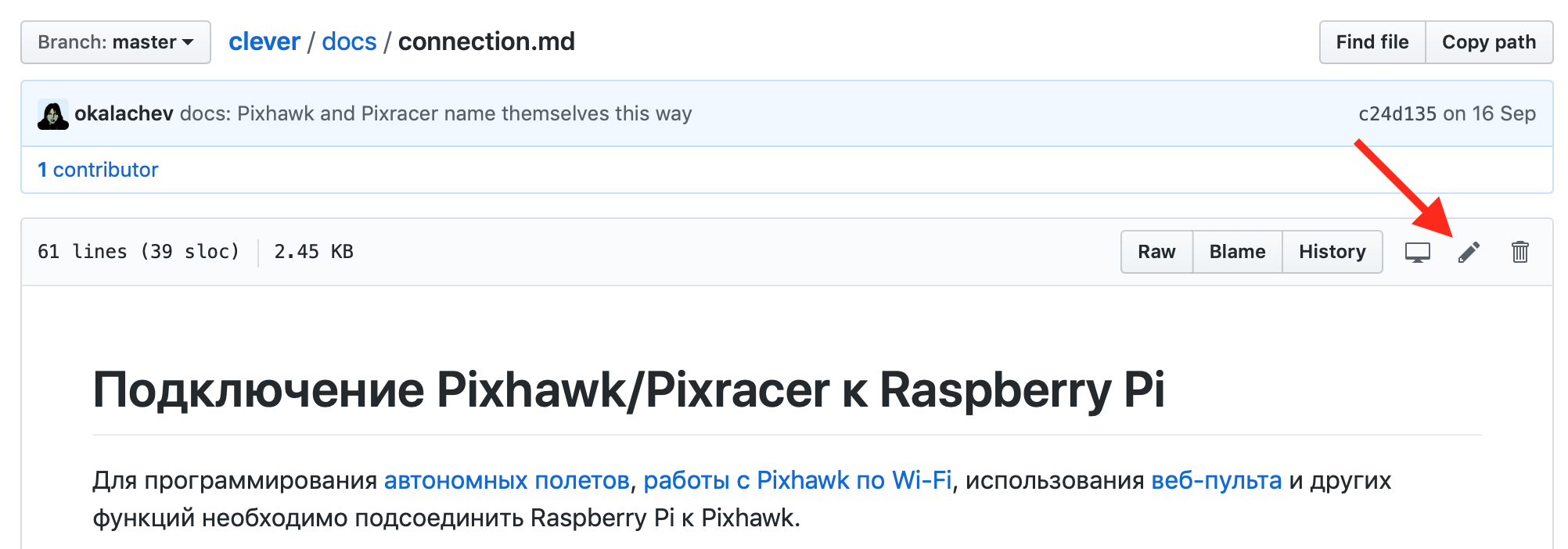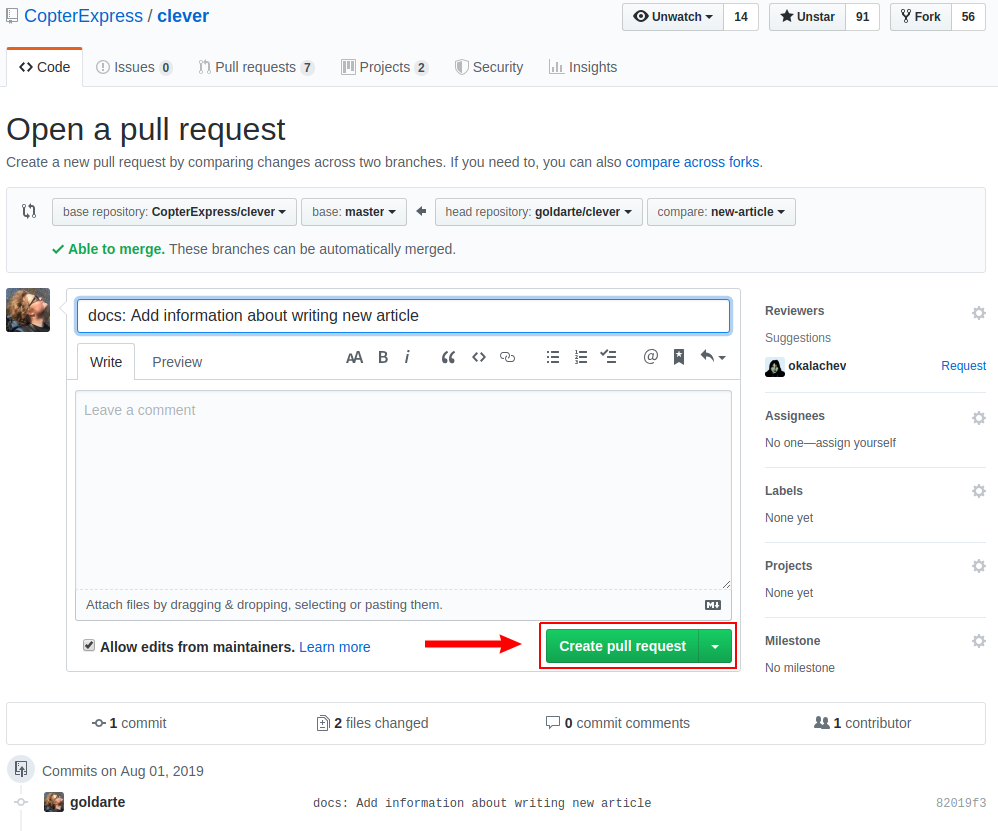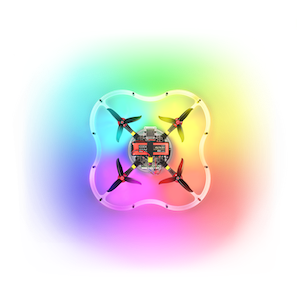Contribution to Clover
Clover is mostly an open source and open hardware project aimed at lowering the entry threshold to development of the projects related to flying robotics. You can contribute to the project by offering fixes and improvements for Clover documentation and software.
TIP
To offer changes to Clover documentation or SW, you should have an account at GitHub.
Markdown
All Clover documentation is written in the widespread Markdown format. There are many Markdown guides on the Internet.
In Russian: https://guides.hexlet.io/markdown/.
In English: https://www.markdownguide.org/getting-started, https://github.com/adam-p/markdown-here/wiki/Markdown-Cheatsheet.
For the ease of editing texts, you may use text editors with Markdown support: Typora, Dillinger (web), VSCode with the Markdown Editor plugin.
We also recommend using the Code Spell Checker VScode plugin.
For a local build of a static documentation website, use the gitbook-cli utility.
Fixing documentation errors
If you have found an error in the documentation or if you want to improve it, use the Pull Request mechanism.
Find a file with the article you want in the repository – https://github.com/CopterExpress/clover/tree/master/docs.
Click "Edit".

Make the necessary changes.
Click "Propose file change".
Describe the change you have made, and click "Create a Pull Request".
Wait for your changes to be approved 😃
More information about Pull Requests is available at GitHub (English) or in GIT documentation (Russian).
Contributing a new article
TIP
If you've made your own project based on Clover, you can add an article about it to the "Clover-based projects" section.
Prepare your article and send it as a pull request to the Clover repository.
Fork the Clover repository:

Check out the freshly-forked repository on your computer:
git clone https://github.com/<USERNAME>/clover.gitOpen the directory with the source code checkout and create a new branch for your article (for example,
new-article):git checkout -b new-articleWrite a new article in the Markdown format and save it in the
docs/ruordocs/enfolder (for example,docs/en/new_article.md). Don't forget to give you contacts (e-mail / Telegram / ...) in articles on your projects.Place additional visual assets in the
docs/assetsfolder and add them to your article.Add a link to your article to the appropriate section in the
SUMMARY.mdfile (in the same folder as in the fourth step):... * Supplementary materials * [COEX Pix](coex_pix.md) * [Contribution guidelines](contributing.md) * [New article](new_article.md) * [RC troubleshooting](radioerrors.md) * [Flashing ESCs](esc_firmware.md) ...Commit your changes locally:
git add docs/ git commit -m "Add new article for Clover"Upload your branch to your forked repository on GitHub:
git push -u origin new-articleOpen your repository on GitHub and send a
pull requestfrom your branch to Clover:

Wait for the review, be ready to make changes if needed.
Look at your new and useful article at https://clover.coex.tech !
Easy way
If the above instructions are too difficult for you, send your fixes and new articles by e-mail (okalachev@gmail.com) or in Telegram messenger (user @okalachev).
Publishing packages
You also can publish a package, that extends Clover functionality, into the official COEX Debian repository.
